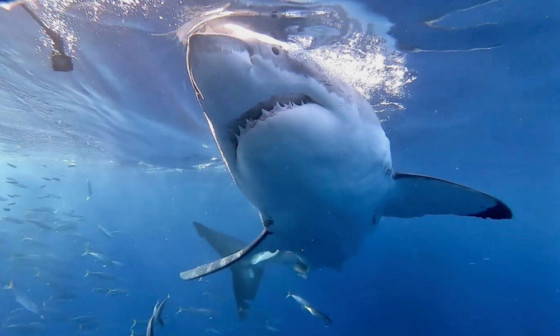A startling finding has been made near Rio de Janeiro, Brazil, where cocaine has been detected in shark samples. Cocaine is thought to be present in shark systems due to ongoing drug discharge from illegal refining operations and inadequate sewage treatment infrastructure, per a study published in Science of “The Total Environment.”
Oswaldo Cruz Foundation researchers examined thirteen specimens of Brazilian sharpnose sharks that were gathered between September 2021 and August 2023. Cocaine was present in the muscle and liver tissue of every sample. Rachel Ann Hauser-Davis, a biologist, stressed the need for more research to pinpoint the precise effects of this contamination on shark populations.
She proposed that because the liver is so important to the formation of an embryo, cocaine exposure might affect the sharks’ growth, maturation, and possibly even fertility. Sharks are regarded as “sentinel species” because they are apex predators and can alert people to environmental dangers before humans are harmed.
The study emphasises how crucial it is to keep an eye on how pollution affects marine life. Although the study did not examine the effects of cocaine specifically on sharks, earlier studies have demonstrated that methamphetamine addiction is a possibility in brown trout.
Furthermore, researchers have discovered that heavy metals, antidepressants, and birth control pills are among the many contaminants polluting rivers, lakes, and oceans across the globe.











